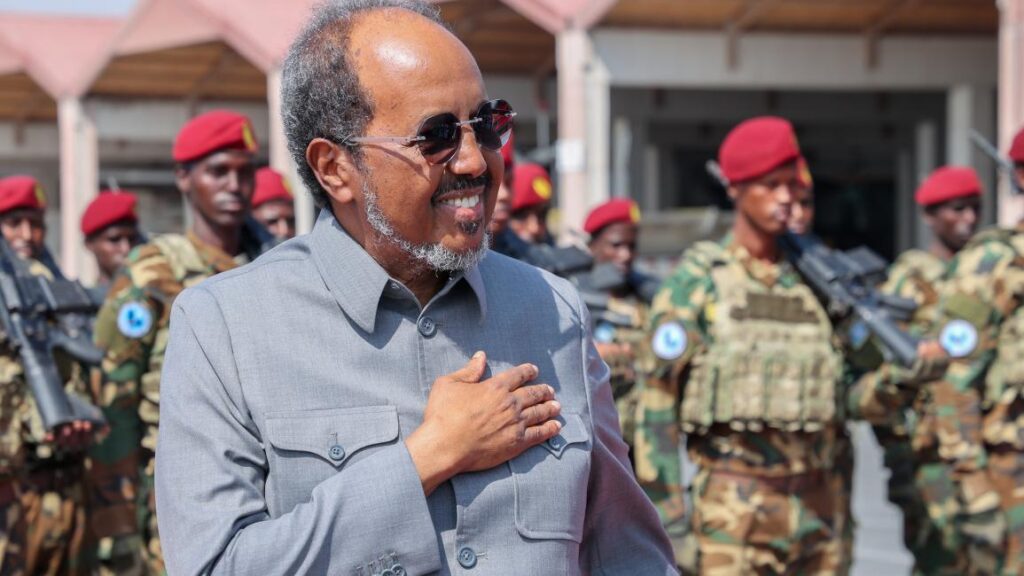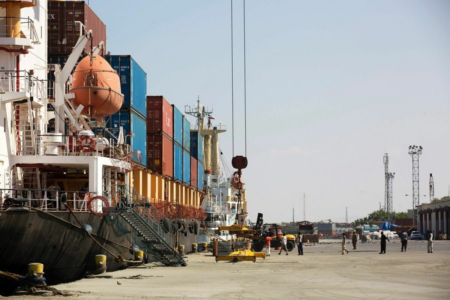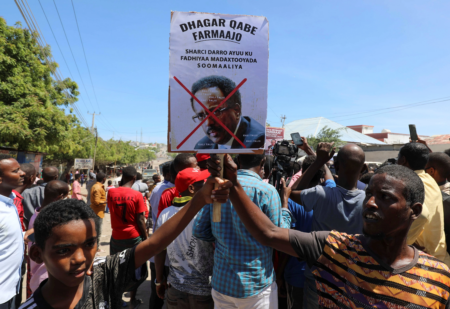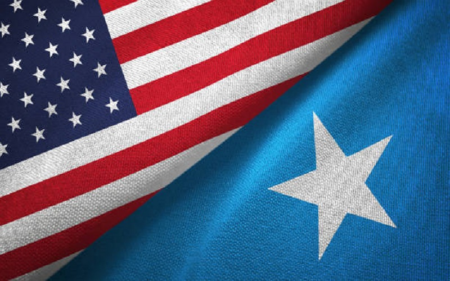The failure of five consecutive meetings between Somalia’s federal government and the opposition under the “Somali Salvation Platform” highlights the deep political divisions threatening the country’s democratic future.
Somali President Hassan Sheikh Mohamud reiterated his promise to finalize the Somali Constitution, describing it as a cornerstone for establishing a “one person, one vote” electoral system.
He also criticized the fragmented opposition, stressing the absence of a unified national vision.
The president further called for a shift away from personality-driven politics toward party-based governance rooted in principles and national agendas.
Somali Opposition Leaders Concerns
Opposition leaders have expressed concerns about the transparency of the political process, the government’s commitment to constitutional reforms, and the credibility of upcoming elections.
Opposition spokesman Ambassador Tahir Mahmoud Gelle described the negotiations as “difficult but not yet deadlocked,” citing one session that lasted 19 continuous hours.
He confirmed partial progress, including an agreement that Somalia’s president should continue to be elected by parliament, maintaining the long-standing system.
Constitutional Amendments
Gelle also insisted that a vote of no confidence against the prime minister must come from parliament, not solely the presidency, as proposed in the recent constitutional draft.
Gelle also addressed the issue of political parties, noting that recent constitutional amendments in 2024 imposed stricter regulations.
However, opposition and government negotiators showed flexibility, leaning toward a system where parties securing at least 8–10 seats could directly enter parliament, while smaller parties would be required to merge.
Risks of Clan-Based Polarization
Political analysts warn that the ongoing crisis could reignite clan rivalries, undermining national security and Somalia’s fragile stability.
Somali journalist Aweys Hussein argued that prolonged disputes may drive the opposition to mobilize clan leaders or even military officers, as seen in 2021, when sections of the police and army revolted against the federal government.
Such a scenario, he said, would weaken counterterrorism efforts against al-Shabaab and derail development projects.
Hussein also warned that tensions will likely intensify as Somalia approaches the end of President Hassan Sheikh Mohamud term in May 2026, potentially disrupting plans for direct national elections next year.
Electoral Reforms at the Heart of the Crisis
The root of the dispute lies in the 2024 constitutional amendments, which introduced major changes to Somalia’s political system.
These included shifting to direct presidential elections, granting the president authority to appoint and dismiss the prime minister, and reducing the number of political parties to three—effectively ending the clan-based power-sharing model known as “4.5”.
According to Farhan Isse Yusuf, a researcher at the Somalia Agenda Center, the opposition fears that direct elections could be manipulated by the federal government, raising concerns about fairness, corruption, and transparency.
While the government argues that direct voting will strengthen democracy, the opposition sees the reforms as rushed and divisive.
“One Person, One Vote” in Mogadishu: A Turning Point?
Amid the political turmoil, Somalia’s National Independent Electoral Commission (NIEC) announced that nearly 1 million citizens in Banadir (Mogadishu) have registered to vote—exceeding the target of 812,000.
The capital is set to hold historic municipal elections on October 30, 2025, with about 800 polling stations opening across the city.
These elections will mark the first large-scale test of Somalia’s “one person, one vote” system, replacing decades of clan-based representation.
Growing Public Demand for Political Participation
Supporters hail the move as a transformative step toward democracy, while critics warn that security threats from al-Shabaab and logistical challenges could undermine credibility.
Nevertheless, the active voter registration reflects growing public demand for political participation, signaling a potential shift away from clan-based politics if the elections succeed.
Can Somalia 2026 Elections Create Inclusive and Democratic Future?
Somalia stands at a critical crossroads.
The deepening rift between the government and opposition, combined with contentious constitutional reforms, could either pave the way for democratic transformation or plunge the country back into political instability.
The upcoming October 2025 municipal elections in Mogadishu will be a defining test of Somalia’s ability to move toward a more inclusive and democratic future.








